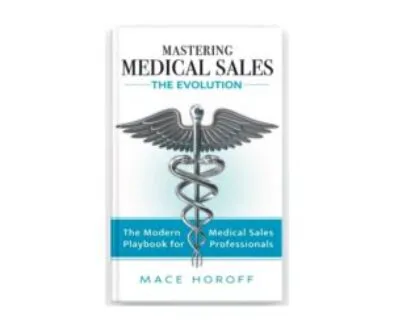Expectations for a Medical Sales Job
I get calls every week from people who are trying to land a medical sales job and want some advice. The calls often sound something like this…
“Hi, I just graduated from college and I would like to get into medical sales. I’m looking for a six-figure sales job and was wondering if you can recommend some companies.”
I reply, “Tell me. What makes you worth a hundred grand?”
Following several seconds of silence…..”Well, I have a BS from [big name school]. My friend’s dad who is a doctor said not to take less than that and to only work for a big compay.”
“He did? Okay, so you have a college degree. Tell me what you know about medical selling?”
“Excuse me? Selling? Well, nothing really. I have a college degree. I’m smart. I’m a fast learner so I’m willing to work for a company that will train me.”
“So if I understand what you’re saying, you want a company to pay you a hundred thousand dollars a year to train you. Okay, fair enough. Let me ask you a question. Right now there are thousands of medical and pharmaceutical reps who are looking for a position. Many have years of experience selling to hospitals, clinics, doctors, and other health care providers. And yes, most of them have college degrees as well. In fact, many have master’s degrees. A few even have doctorates. But more importantly, many of them have a proven track record in medical sales. Tell me, if I was going to hire someone, why should I hire you?”
By this point, many get the message that landing a job in medical sales requires more than just a college degree. I’ve always said that the most successful medical reps are “Triple Threats,” that is, they possess relationship skills, technical skills, and selling skills. Today, I’ll add on one more skill—business skills. Can all of these skills be learned in college? Depending on the curriculum and the overall college experience, I suppose the answer is yes. But medical sales is tough and it’s going to demand the best from anyone.
I just got off the phone with a young man who is serving on an aircraft carrier in the U.S. Navy. Next year he will complete his commitment and he intends to land a job in medical sales. He does not have a college degree, but he has clinical experience working as a scrub tech and working in infection control plus he has the discipline and commitment that comes with military service. His only expectation is to use his skills to land a medical sales job while he completes his college degree. I shared some ideas with him about some ways he can approach the marketplace and I fully expect that he will succeed. He knows how to make himself valuable to the mission.
Getting hired in medical sales is no different than being in medical sales and selling a product. It’s not about where you went to school, the name of the company you represent or how long you’ve been in the business. It’s about being able to answer the question the customer is asking, which is “Why should I choose you and your product?” I hope you can look past your expectations and answer that question because I know of at least one young soon-to-be former sailor who knows how to answer it. He might show up in your territory.


